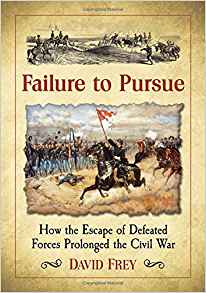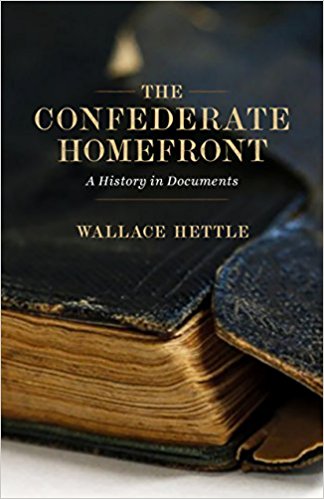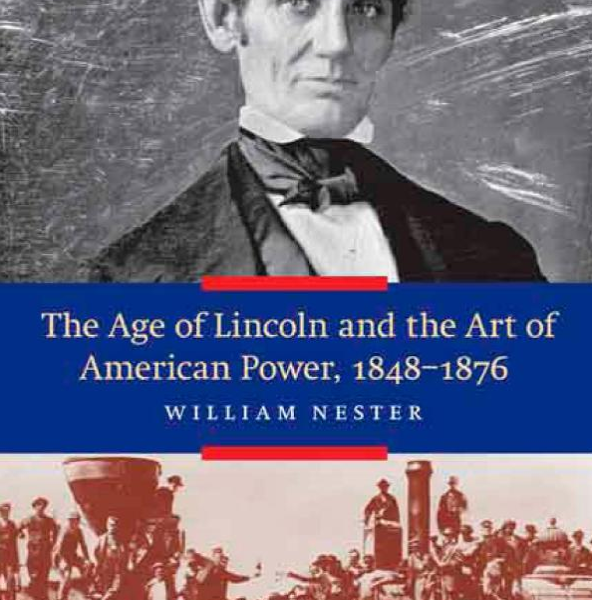It is hard to imagine any book where we learn so little about the central character. The thirty surviving letters of John M. Douthit (52nd Georgia Infantry) are remarkably unrevealing at least in any dramatic or obvious way, but author Elaine Fowler Palencia manages to tease out as much meaning as possible for her quite unusual book.
So the question then becomes, who should read this book? Anyone who entertains romantic notions about the glories of military service would greatly benefit from careful attention to Palencia’s narrative. John Douthit, a farm hand in the northern Georgia county of Fannin, enlisted as a private in March 1862, just as conscription was getting underway. Douthit’s unremarkable service was no doubt more typical than not, and it is this sense of the ordinary—punctuated by suffering in ways small and large—that leaves the most lasting impression.
Douthit’s first letter from camp, like that of many other recruits, noted the election of officers, the spartan fare, and the prevalence of disease. Initially sent to the Cumberland Gap, the 52nd Georgia did not see much action there, but illness often seemed pervasive and desertions began. By July, John was in a hospital at Strawberry Plains suffering from an unspecified fever. He assured his wife Martha that he was improving fast and was out of danger, though many a soldier deceived their loved ones on that score. When Martha gave birth to another daughter, John tactlessly wrote that he would have preferred a son. His laconic letters (he “takes pen in hand,” then often has no news) seldom commented on home matters, except for an occasional remark on farming. To some degree, he adjusted to the deprivations of army life and defined “living high” as dining on “roasting ears beef flour bread” (63).
By far Douthit’s longest letter—an eleven-page account of Braxton Bragg’s Kentucky campaign—recaptured the mixed reaction of civilians, the temptations of foraging, and the prevalence of straggling. There is even a flicker of humor in a description of how several company officers “fearlessly attacked a hen roost” (74). Then there was the persistent search for potable water—a topic begging for greater attention from historians. Douthit’s account of men “getting water out of a pond to cook with and others bathing in it and others watering stock” (69) well illustrates a problem that plagued armies on both sides. On the retreat from Kentucky, Douthit noted the hog skin and chicken feathers strewn along the way as hungry soldiers grabbed whatever they could find.
Although the author shows some familiarity with key secondary works, she might have incorporated more perspectives from the vast literature on Civil War soldiers, especially Peter Carmichael’s The War for the Common Soldier. Palencia fills the many gaps in Douthit’s letters with material from other members of the regiment, accounts of army movements taken from the Official Records, newspaper letters, and general background information. Some readers might well complain that there is far more context than text. Still, it is the smaller details that make the most lasting impressions: camp rumors; casualties in minor skirmishes; the regiment’s remarkably circuitous journey from Murfreesboro to Vicksburg; frequent struggles with rain and mud; men scrambling into trenches under fire at Chickasaw Bayou. To his credit, Douthit admitted that he might not write the truth about this fight because he saw little that was happening outside his regiment.
The letters reflect a natural war weariness, yet despite John’s great desire to come home, he firmly told Martha that he would never become a deserter. He periodically suffered from the inevitable camp diarrhea and at one point from a “remittent fever.” The latter parts of the book deal with the Vicksburg campaign—including an entire chapter on Champion Hill—but the Douthit material is thin. As Grant’s forces were assaulting the city in May 1863, James had fallen ill once again. When the regiment was paroled in July, Martha heard nothing from her husband. Apparently, John and his younger brother, Warren Davis Douthit, were soon admitted to a New Orleans hospital and died there, probably from chronic diarrhea. Given the centrality of religion to many families, Martha had her oldest brother (who was in the Union army) make inquiries about whether the two Douthits had made a “profession” of faith before they died. Where the two were finally buried remains uncertain. What Palencia has produced out of unpromising material is a well-researched, well-written, and always empathetic account of a very ordinary soldier and his family.
George C. Rable is the author of many works of Civil War history, including the Lincoln Prize winning Fredericksburg! Fredericksburg!





